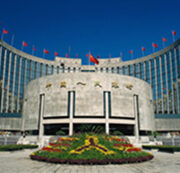Archive | Blog RSS feed for this section
Governance and public sector management
 Industry and trade
Industry and trade
 Finance sector development
Regional cooperation and integration
Industry and trade
Governance and public sector management
Education
Finance sector development
Regional cooperation and integration
Industry and trade
Governance and public sector management
Education
 Finance sector development
Finance sector development
 Regional cooperation and integration
Regional cooperation and integration
 Governance and public sector management
Governance and public sector management

Asia in the 21st century: the challenge of good governance

The concept of good governance has many aspects. I will focus on two here: corruption and the rule of law. All Asians aspire to live in a society in which they do not have to offer a bribe to anyone in order to obtain what they are entitled to under the law. They want to live in a society in which the policeman, prosecutor and judge are not corrupt. They want to live in a society in which licences and contracts are granted and policies are made in a transparent manner and based on merit and nothing else. Corruption is a cancer eating at the heart of Asia. It is one of the most shameful of Asia’s failings.
Moving the Trans-Pacific Partnership forward: what will it take?

The formation of a Free Trade Area of the Asia–Pacific (FTAAP) has been intensively discussed in recent years. However, it is anticipated that such an Asia-Pacific Economic Cooperation (APEC)-wide FTA would take many years to negotiate and involve numerous studies among all the APEC members, currently 21 in number. The Trans-Pacific Partnership (TPP) could be a viable alternative. It is intended to be a “high-quality, comprehensive 21st century FTA” that will promote economic integration in the Asia-Pacific region. In addition to deep commitments to tariff reductions, it aims to cover services trade, investment, intellectual property, government procurement, competition policy, labor, the environment, and many other issues affecting trade and investment.
East Asia can learn from Europe’s mistakes
The current European crisis has highlighted the policy mistakes that were made in the process of European financial and monetary integration. It has exposed major deficits in the eurozone’s institutional framework, including insufficient macroeconomic policy coordination and the lack of a crisis response mechanism (which then had to be negotiated in the midst of crisis). One of the major failures that led to the current European predicament was that national and European policymakers allowed the build-up of huge macroeconomic imbalances within the eurozone. Wages and prices in southern “periphery” countries (with Ireland being an honorary member of the south) rose much more quickly than in the northern “core” countries such as Germany. The resulting loss of economic competitiveness of the periphery countries has led to a growth crisis that fed into a sovereign debt crisis after government finances were severely strained during the global financial crisis.
Does the Eurasian Union have a future?
On 3 October 2011, Russian Prime Minister Vladimir Putin proposed the establishment of a Eurasian Union in an article published in the Russian broadsheet Izvestia. The article was entitled “New integration project for Eurasia – making the future today.”
How the Philippines benefits from Australia’s booming links with the PRC
East Asia’s substantially market-led economic integration is a very complex process and is leading to some surprising effects. One example is that of Australia’s booming trade and investment with the People’s Republic of China (PRC), which is pushing up the value of the Australian dollar, and consequently enticing Australian companies to outsource business processing services to the Philippines. Over the past decade, Australia has enjoyed one of the best economic performances of any OECD country. While many structural reforms over the past few decades and sound macroeconomic management have underpinned this, Australia’s closer relationship with the PRC has also played a major role.
Asia in the 21st century: the challenge of equality
Eighteen years ago, the World Bank published a landmark book, The East Asian Miracle. The report praised eight Asian economies for their rapid and sustained economic progress and highlighted the fact that they seemed to have evolved a model which combined growth with equity. What is the situation today? Today we have growth, but with much less equity. All our societies have grown more unequal, as measured by the gini coefficient and the ratio of average incomes of the top 20% and the bottom 20%. According to the World Bank’s latest statistics, the gini coefficient for Singapore was 0.48 in 2010. In the case of the People’s Republic of China (PRC), the gini coefficient has risen from around 0.30 in the early 1980s to around 0.47 in 2009. Some social scientists have warned that inequality which exceeds the gini coefficient of 0.4 could lead to social unrest. Even without social unrest, great inequality is a threat to social cohesion and harmony. The current trend in Asia is fundamentally objectionable because it is inconsistent with the very purpose of development which is to benefit all citizens. ADB is, therefore, right to make inclusive growth one of its three agendas in its Strategy 2020 document.
Reforming Asia’s Trade in Services will Help Human Development

The services sector is becoming increasingly important in modern economies. In many of the most developed economies, it can represent two–thirds or even three–quarters of all economic activity. Even in developing economies, the services sector often accounts for a significant share of economic output and employment. International trade in services is also increasing in importance, and has been growing more rapidly than goods trade over recent years. It has also proven to be more resilient to the global financial crisis and resulting trade collapse. It has long been recognized that services trade can influence economic and social outcomes through a variety of mechanisms.
New Challenges for Asia’s Central Banks

The current macroeconomic environment is far more unpredictable and difficult than just a few years ago. Asia’s central banks must evolve in order to adapt to this new landscape. Usually, a central bank’s role is to keep inflation low and stable. But with recent upheavals and financial market turmoil, they have also been charged with maintaining financial stability. To do this, central banks must increasingly work together and coordinate with other authorities. Such coordination—central to the region’s successful navigation of the 2008–2009 global financial crisis— does have implications for central bank objectivity. Central banks do not want to lose their often hard-won independence—an important factor in their operational effectiveness.
Chinese and US health programs in Africa have more in common than you might think

Concerns have been expressed in the Western media that Chinese aid to Africa represents a form of “new colonialism.” However, comparing Chinese and US health programs in Africa suggests that the two have more in common than might be expected. Both countries’ health efforts in the region share similarities in terms of objectives, priorities and challenges. Foreign aid from the PRC and the US is provided not only as development assistance but also as a tool of soft power. Both the PRC and the US shape some of their health efforts to boost friendship and goodwill across Africa. Public opinion polls suggest that both countries are generally viewed positively by Africans.
Myanmar: Rushing in Where Angels Have Feared to Tread

The remarkable, surprising, and extensive reformist policies of the new Republic of the Union of Myanmar have sparked interest throughout the international community. As one of the world’s last bastions of both relative isolation and new opportunities, Myanmar has recently become a magnet to which many are drawn. Governments, international non-profit organizations, and businesses are exploring what they might do in a state marred by intense poverty but possessing abundant natural resources. With a literate and diverse population and a myriad of business opportunities, Myanmar entices with many diverse possibilities for rapid growth and social equity. Hotels are filling up with tourists who now feel more comfortable going to that once exotic land, and embassies may well expand staffs to handle more foreign assistance. Many more international NGOs will join the fifty or so already there, and those that are well established may increase staffs as needs become more visible and access increases.


Search
Subscribe / Connect to Asia Pathways
Subjects
- Agriculture and natural resources
- Blog
- Capacity development
- Climate change
- Economics
- Education
- Energy
- Environment
- Finance sector development
- Gender
- Governance and public sector management
- Health
- Industry and trade
- Information and Communications Technology
- Infrastructure
- Miscellaneous
- Population
- Poverty
- Private sector development
- Regional cooperation and integration
- Sanitation
- Social development and protection
- Transport
- Uncategorized
- Urban development
- Video Blog
- Water
Recent Posts
- Unraveling the Health Risks of Climate Change
- Linking Farmers to Markets Through Agricultural Cooperatives and E-Commerce in Asia
- How Can Governments Support Electricity Distribution to Achieve Net Zero in Asia?
- Promoting Corporate Climate Action Through Greenhouse Gas Accounting
- Evaluating G7 Commitments on Climate Change, Health, Well-Being, and Agriculture




Recent Comments